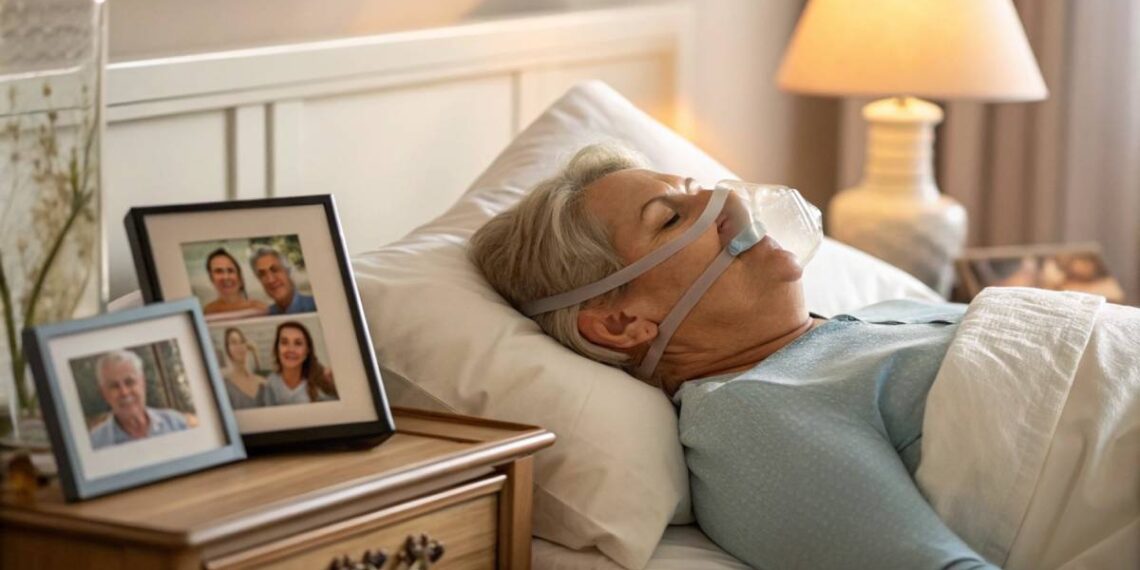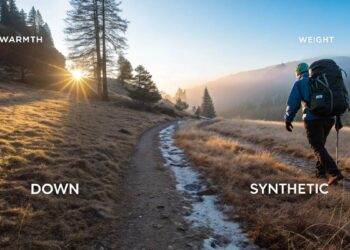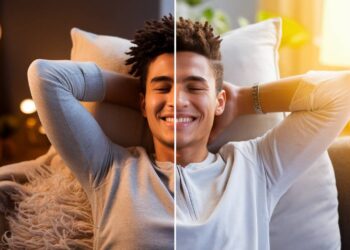Sleep apnea is more than just loud snoring; it’s a silent disruptor of life’s most restorative process—sleep. For seniors, its impact can cascade through their health, exacerbating existing conditions and lowering quality of life. Yet, many dismiss the signs, mistaking them as just “getting older.” What if we could rewrite that narrative? Dive into this comprehensive guide to understand the nuances of sleep apnea in seniors, its risks, and the paths to better sleep and well-being.
Key Takeaways
- What is Sleep Apnea? A condition that disrupts breathing during sleep, with obstructive sleep apnea (OSA) being the most common in seniors.
- Symptoms in Seniors: Loud snoring, daytime fatigue, morning headaches, restlessness, memory struggles, and mood changes.
- Health Risks: Increased risk of heart disease, cognitive decline, and worsened chronic conditions like diabetes.
- Diagnosis: Methods include polysomnography, home sleep apnea testing, and consultations with specialists.
- Treatment Options: CPAP therapy, oral appliances, and surgery for severe cases.
- Lifestyle Adjustments: Weight management, reduced alcohol intake, regular sleep schedules, and sleep-friendly environments can aid in managing the condition.
- Support & Monitoring: Regular follow-ups with healthcare professionals and ongoing monitoring are key to effective management.
Understanding Senior Sleep Apnea
What is Sleep Apnea?
Sleep apnea is kind of like hitting the brakes too hard while you’re dozing off—your breathing stops or slows during sleep. These breathless bouts can steal moments or even minutes, happening over and over through the night. The main players are obstructive sleep apnea (OSA), central sleep apnea (CSA), and complex sleep apnea syndrome, which mixes the first two. For older folks, OSA wears the crown as the most common troublemaker.
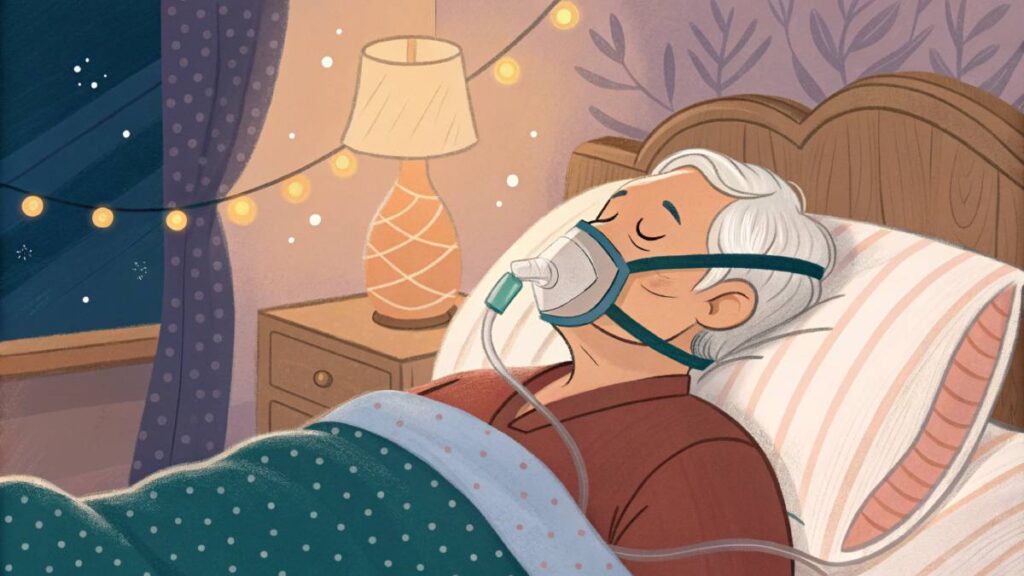
Our golden agers might not show the same signs of sleep apnea as their younger counterparts. It often pulls a sneaky one, slipping by undiagnosed because people chalk up the symptoms to simply getting older or dealing with another hiccup in health.
“Sleep is the golden chain that binds health and our bodies together.” – Thomas Dekker
How Does Sleep Apnea Affect Seniors?
Sleep apnea can rain on the parade of a senior’s life in more ways than one. It robs them of peaceful slumber and carries a bag full of health risks. Here’s a breakdown of how sleep apnea gives seniors the short end of the stick:
| Effect | Description |
|---|---|
| Cognitive Decline | Sleep apnea doesn’t play nicely with others, often making problems like diabetes or COPD worse. |
| Increased Risk of Heart Disease | With sleep apnea, the heart races against high blood pressure and heart problems, upping the stakes for heart disease and strokes. |
| Daytime Fatigue | Constant sleep chaos equals daytime drowsiness, which saps energy and makes activities feel like a chore. |
| Behavioral Changes | The mood might swing like a pendulum, anxiety might creep in, or depression might darken the horizon, all thanks to lousy sleep. |
| Aggravation of Existing Conditions | Sleep apnea doesn’t play nice with others, often making problems like diabetes or COPD worse. |
Folks and their caretakers need to stay sharp for any hints of sleep apnea. A chat with the doctor can shed light on concerns, making it easier to manage the condition. Curious how sleep woes shift through life’s chapters? Dive into our reads on teenage sleep deprivation and college student sleep tips for a broader view.
Recognizing Symptoms
Spotting sleep apnea clues can be a game-changer for older folks and their caregivers. Noticing these signals can open up conversations with doctors about possible diagnoses and what to do next.
Common Signs of Sleep Apnea in Seniors
Older adults might show several telltale signs that hint at sleep apnea. Being in the know about these signs can empower caregivers and families to lend a hand and suggest getting a doctor’s opinion. Here’s a quick look at some typical red flags:
| Symptom | Description |
|---|---|
| Loud Snoring | Loud snoring, is often paired with gasping or choking sounds while sleeping. |
| Daytime Fatigue | Feeling wiped out during the day, despite clocking in a full night’s sleep. |
| Morning Headaches | Waking up with headaches, usually because of not getting enough oxygen while snoozing. |
| Restlessness | Tossing, turning, and frequent movements at night that mess with sleep quality. |
| Memory Problems | Struggling to concentrate or experiencing forgetfulness, linked to poor sleep. |
| Mood Changes | Feeling grumpy, anxious, or down, likely due to not getting enough good sleep. |
When these symptoms show up, it’s a smart move for seniors to chat with their healthcare pals.
Diagnosing Sleep Apnea in the Elderly
Pinpointing sleep apnea calls for a full-on exploration. Docs usually kick things off by digging into medical histories and doing a physical check-up. They might try these options to nail a diagnosis:
- Sleep Study (Polysomnography): This test keeps tabs on different body activities while you’re dreaming—watching brain waves, eye motions, how you’re breathing, and heartbeats.
- Home Sleep Apnea Testing: Like the sleep study but simplified. This lets you do it at your place with a portable monitor.
- Consultation with a Specialist: Seeing a sleep guru can offer extra advice tailored to someone’s situation.
Jumping on a diagnosis early means seniors can tackle issues head-on, avoiding troubles from letting things slide. If symptoms of sleep apnea start to show, it’s a good idea to get checked out to figure out the best next steps. Want more tips on handling sleep woes? Have a peep at our piece on sleep and cognitive health.
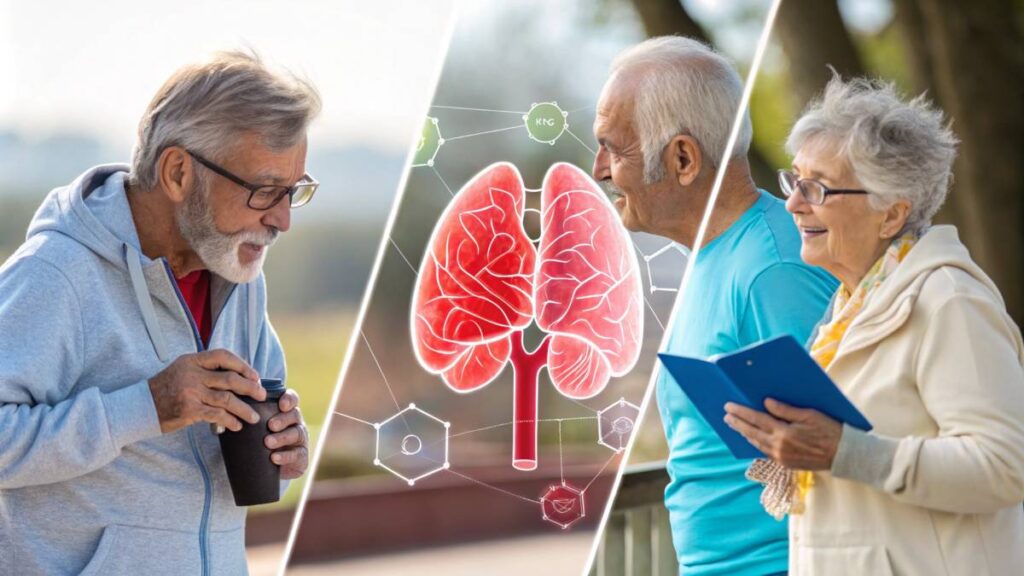
Risk Factors and Complications
Dealing with senior sleep apnea means getting the lowdown on what causes it and what might happen if you leave it unchecked.
Factors Contributing to Senior Sleep Apnea
Certain things can boost the chances of a senior getting hit by sleep apnea. Often, these factors mix together and intensify the whole issue.
| Risk Factor | Description |
|---|---|
| Age | As people get older, sleep apnea tends to pop up more. |
| Obesity | Extra pounds can block airflow, making sleep apnea worse. |
| Neck Size | A beefy neck might spell trouble because it can block the windpipe. |
| Gender | Men are usually more at risk, but post-menopausal women start catching up. |
| Family History | If it runs in the family, sleep apnea might come knocking. |
| Smoking and Drinking | Both can loosen throat muscles, causing breathing blockages. |
Knowing these triggers helps seniors and those looking after them to be on their toes.
Health Risks Associated with Untreated Sleep Apnea
Ignoring senior sleep apnea can have some really big and ugly consequences. Being clued up on these can steer you to jump in and tackle it early.
| Health Risk | Description |
|---|---|
| Heart and Blood Problems | Skipping treatment for sleep apnea messes up your ticker and can lead to high blood pressure, heart woes, and even strokes. |
| Memory and Mental Hiccups | Sleep apnea might scramble your memory or slow your thinking, since catching z’s is a big deal for brainwork. |
| The Sugar Factor | This condition is linked to pushing you closer to type 2 diabetes thanks to insulin resistance. |
| Mood and Mind Disorders | Anxiety and depression can be made worse by letting sleep apnea run wild. |
| Daytime Drag | Bad sleep leads to dragging your feet all day, making staying awake and alert a real chore. |
For more tips on handling sleep issues at every age, you might find articles like Teenage Sleep Deprivation and Sleep and Cognitive Health handy.
Treatment Options
Dealing with senior sleep apnea isn’t one-size-fits-all, but you’re in luck because you’ve got options! We’re talking about three main ways to help you or your loved ones breathe easier and snooze better: CPAP therapy, nifty oral appliances, and for those extreme cases, surgery.
“Quality sleep is the foundation of aging gracefully and healthfully.” – Dr. William Dement
Continuous Positive Airway Pressure (CPAP) Therapy
First up, CPAP therapy – you may have seen or heard of it. It’s like having a trusty sidekick in the form of a mask hooked up to a magical machine sending a gentle breeze down the airway all night long. It keeps things open and flowing, cutting down on those annoying snore fests and apnea spells while amping up sleep quality.
| Factor | Description |
|---|---|
| Effectiveness | Knocks out up to 90% of apnea episodes for many folks |
| Comfort | Comes in all sorts of mask styles – something for everyone |
| Maintenance | Needs some TLC with regular cleaning and check-ups |
Getting cozy with CPAP might take a bit of time. It’s smart to chat with healthcare pros to make sure everything fits like a glove and runs smoothly. Regular check-ins help fine-tune the therapy’s magic, too.
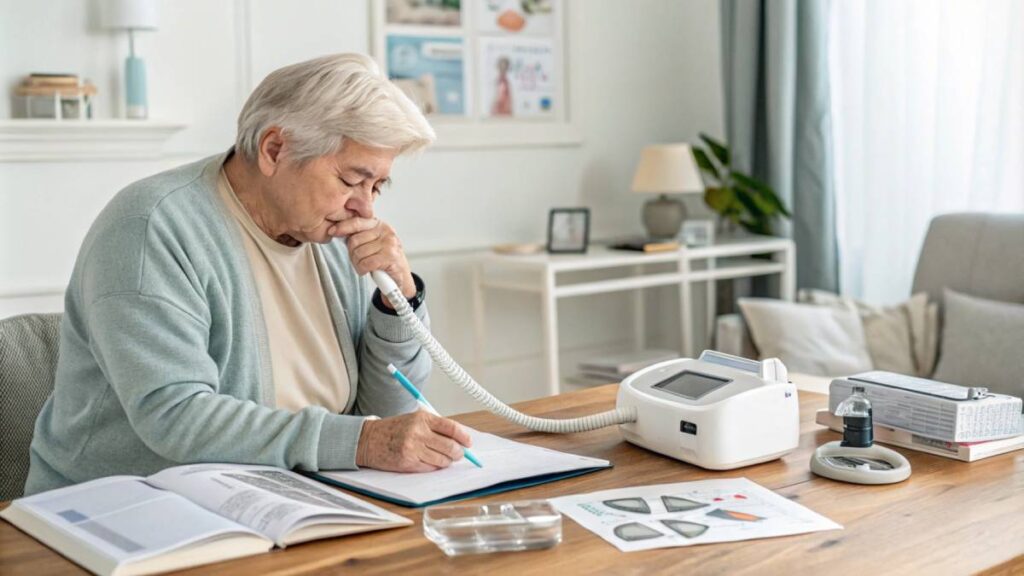
Oral Appliances for Sleep Apnea
If strapping on a mask isn’t your style, don’t worry! Oral appliances could be your new best friend. Think of these as mouthguards with a mission – propping the jaw just right to keep that airway clear. Perfect for folks with mild to moderate sleep apnea.
| Factor | Description |
|---|---|
| Effectiveness | Rids of snoring and tames sleep apnea for many users |
| Comfort | Portable and less of a hassle than CPAP gear |
| Customization | Crafted to fit your own mug cozily |
If you’re leaning toward oral appliances, swinging by your dentist’s office is the way to go. They’ll hook you up with devices that fit like a dream and perform just as well.
Surgery as a Last Resort
And then there’s surgery – the heavy hitter. For cases that give CPAP and oral appliances a run for their money, surgery can tweak the structure of the airway, tackling other culprits of sleep apnea head-on. This could mean anything from trimming excess throat tissues to shifting the jaw.
| Depending on the procedure; you might need some chill time | Description |
|---|---|
| Effectiveness | A win for the right patients |
| Risks | It’s surgery; potential bumps in the road are part of the package |
| Recovery | Depends on the procedure; you might need some chill time |
Going under the knife should be your last call after giving other treatments a fair shake. Sitting down with healthcare pros to ponder the pros and potential cons is key before taking this leap.
Sorting out senior sleep apnea can bring about some real enhancements in life. The treatment you’re leaning toward might depend on how severe the condition is, the individual’s health vibes, and what they feel comfortable with. For tidbits on boosting overall sleep health, peek at our pieces on improving sleep naturally and sleep and cognitive health.
Lifestyle Tweaks
A few small changes can make a world of difference for seniors battling sleep apnea. Let’s explore some straightforward, practical swaps.
Weight Loss & Movement
Keeping the pounds in check is mighty important when dealing with sleep apnea. Flabby and obstructive airways don’t mix well with restful nights. Moving more helps shed those pounds and naturally leads to snoozing like a baby—even if you’re slightly older.
| Move Your Body | How Long? | How Often? |
|---|---|---|
| Heart Pumpers | 30 minutes | 5 times a week |
| Muscle Makers | 20-30 minutes | 2-3 times a week |
| Bendy Stretches | 10-15 minutes | Every day |
Chat with a doctor before jumping into a new routine, just to keep it safe and tailored to your health needs.
Skipping the Nightcap & Sleepy-Time Meds
Late-night drinks and sleepy pills can mess with your sleep mojo, especially when wrestling with apnea. Seniors should consider ditching the booze and sedatives before nodding off. Maybe try reading a book or stretching gently as a pre-sleep ritual.
| No-No Drink/Substance | Don’t Touch Before… |
|---|---|
| Booze | 4 hours before bed |
| Sleepy Meds | Keep 4-6 hours gap |
Cutting back on these could lead to more peaceful nights with fewer disruptions.
Keep Sleep Schedules Tight
A regular bedtime routine is your buddy if your sleep’s been on the work. Hitting the sack and rising at the same hour nudges your inner clock back on track, upping the quality of your zzz’s.
| Set Your Sleep Clock | Weekdays | Weekends |
|---|---|---|
| Hit the Sack | 10:00 PM | 10:30 PM |
| Rise and Shine | 6:00 AM | 7:00 AM |
Wind down with some soothing tunes or a few deep breaths to let your body know it’s lights out. For more napping tips, see our piece on natural sleep boosts.
These small adjustments can have a big impact on a senior’s sleep quality, supporting a more restful night and helping keep sleep apnea in check.
Sleep Environment
Let’s talk about sleep solutions for seniors with sleep apnea. A cozy and supportive bedroom setup isn’t just nice to have—it’s a game changer for improving snooze quality and boosting overall health.
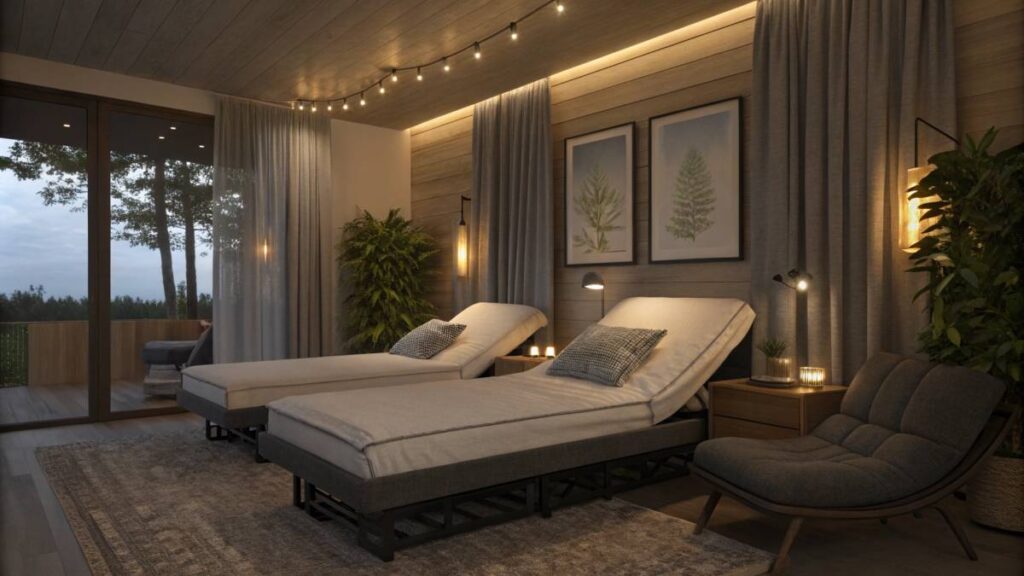
Creating a Sleep-Friendly Bedroom
A dreamy bedroom setup means comfort first, and distractions last. Here’s the lowdown on turning yours into Sleep Central:
| Element | Recommendation |
|---|---|
| Mattress | Go for a medium-firm mattress; it helps keep your spine in line. |
| Pillows | Adjustable or contoured pillows are your best buddies for keeping that head propped up. |
| Lighting | Blackout curtains to keep things dark and dreamy. |
| Noise Control | White noise machines or earplugs to hush any unwelcome noise. |
| Temperature | Chill vibes only! Aim for 60-67°F (15-19°C) for the perfect snooze temp. |
| Clutter-Free Zone | A tidy room equals a relaxed mind—keep it neat. |
Get these elements right, and your room transforms into a peaceful haven for a night’s restful slumber.
The Importance of Proper Sleep Position
Older folks, listen up: how you sleep could be the key to tackling sleep apnea. Positioning can affect how well you breathe at night. Here’s the scoop on positions:
| Position | Benefits |
|---|---|
| On the Side | Keeps airways clear, making it the go-to for sleep apnea relief. |
| Elevated Position | Wedge pillows are your friend here; they help lift your head and aid airflow. |
| Avoiding Back Sleeping | On your back isn’t ideal—your tongue might block the airways. |
Seniors and their helpers should experiment with comfy side positions to keep breathing easy. Dig into more tips with our reads on sleep tips for 30s and improve sleep naturally. Nailing down the right sleep environment and positions means better quality sleep and healthier life for seniors dealing with sleep apnea.
Support and Monitoring
Keeping tabs on how seniors manage sleep apnea ain’t a one-and-done kinda deal. It’s something that needs frequent check-ins and a bit of expert advice now and then. So, let’s chat about drawing help from the medical folks and why you gotta keep going back for those follow-ups.
Seeking Support from Healthcare Professionals
You don’t wanna skip on reaching out to the docs when dealing with sleep apnea in seniors. These pros know their stuff when it comes to figuring out what’s what and sorting out treatment. If you’re tuning into this, here’s who you might wanna keep on speed dial:
| Type of Professional | How They Help |
|---|---|
| Primary Care Physician | Kicks off the checks and can point you to the specialists |
| Sleep Specialist | Does the deep dives and map out how to tackle the condition |
| Respiratory Therapist | Gets you up to speed on using CPAP gadgets and gives tips on keeping steady with it |
| Nutritionist | Offers advice on diet and managing weight, ‘cause every bit helps |
Think of it as teamwork. Having a crew of these specialists means they can pool their smarts together for a better game plan. You also got extras like educational reads, local programs, and hangouts with others in the same boat.
Regular Monitoring and Follow-Up Care
Keeping an eye on those Z’s and how things are working out is kinda like making sure your car’s running smoothly—don’t wanna skip that service check. Here’s how seniors can keep track:
| Aspect | What To Do |
|---|---|
| Sleep Diaries | Jot down daily sleep habits and any weird stuff—helps see what’s working or not. |
| Follow-Up Appointments | Book those regular meet-ups with your healthcare peeps to tweak as needed. |
| Equipment Checks | Keep tabs on whether your CPAP or any gear is running just right, so it doesn’t let you down. |
Staying on top of monitoring and getting some outside help lets seniors stay ahead with their sleep health. And if you’re curious about making your shut-eye even better without hitting the pharmacy, give our ideas on improving sleep naturally a whirl.
Conclusion
Sleep apnea doesn’t have to steal the golden glow of senior years. From understanding its symptoms to exploring tailored treatment options, proactive steps can transform restless nights into peaceful slumbers. Seniors and their caregivers should remain vigilant, seek early diagnosis, and embrace lifestyle tweaks alongside medical interventions. Better sleep isn’t just a dream—it’s a gateway to healthier, happier golden years.
FAQs
What is sleep apnea?
Sleep apnea is a sleep disorder that causes repeated interruptions in breathing, leading to disrupted sleep and potential health risks.
How is sleep apnea diagnosed in seniors?
Through sleep studies like polysomnography, home sleep apnea testing, and evaluations by sleep specialists.
Can lifestyle changes help manage sleep apnea?
Yes, weight loss, reducing alcohol, and maintaining a consistent sleep schedule can improve sleep apnea symptoms.
What are the treatment options for senior sleep apnea?
CPAP therapy, oral appliances, and surgery are common treatments, depending on severity and patient comfort.
Are there long-term risks of untreated sleep apnea?
Yes, untreated sleep apnea can lead to heart disease, cognitive decline, type 2 diabetes, and worsened mood disorders.
Resources
- National Sleep Foundation – Trusted insights into sleep health.
- American Academy of Sleep Medicine – Guidelines for diagnosing and treating sleep apnea.
- Mayo Clinic – Sleep Apnea – Detailed information on sleep apnea symptoms and treatments.
- Sleep Apnea Awareness – Signs, Symptoms, and Solutions

